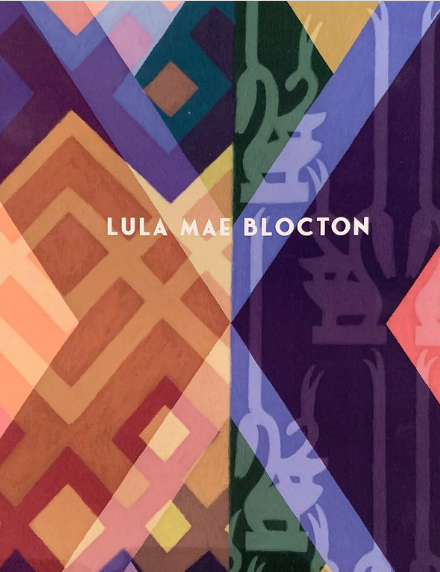
African American Experience Through Color and Pattern
Artist Lula Mae Blocton has campaigned for civil rights and explored the intersectional identities of the LGBTQIA+ and Black communities in her vividly colored paintings.
For Lula Mae Blocton, “there have been two constants in my life: a love of art—formal, precise, abstract—and a concern for human dignity and civil rights.” As an artist and educator, she combines both in her abstract oil paintings that explore the intersectional identities of the LGBTQ+ and Black communities. In this lavishly illustrated combination autobiography and artistic memoir, Blocton shares her life story both directly and by recounting her evolution as an artist.
Born in Ecorse, Michigan, in 1947, both of Blocton’s parents were the children of sharecroppers from a small community outside of Selma, Alabama. Annual visits to family in the segregated South drove home to her at a young age the evils of racial injustice, but also left clear memories of the treasured family artifacts passed down from generation to generation. As she reflects, “perhaps it is no coincidence that much of my work has been rooted in still life.”
It was not until her sophomore year at the University of Michigan that a beginning painting course opened her to the possibility of a career in the arts. She became only the second African American student to earn a B.F.A. from U-M, going on to earn an M.F.A. from Indiana University before starting her career as an educator at Kean University in New Jersey.
Living in New York in the aftermath of the Stonewall Uprising, she became more deeply involved in the civil rights movement and the fight for LGBTQ+ rights, both personally and artistically. She explored the two movements’ intersections through her use of colors “flowing over and under each other, like fabric.” In 1988, she joined Eastern Connecticut State University, inspiring new generations of students.
A 1997 trip to Kenya and Tanzania initiated new directions in her art, as she discovered new synergies with traditional African textiles, such as Ghanaian kente cloth. Blocton retired in 2013 but continues to paint and exhibit her work both in the United States and internationally.